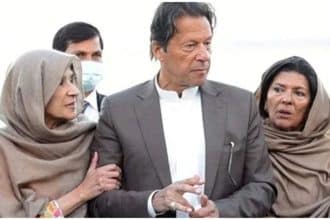On Tuesday, Donald Trump, the incoming U.S. President, raised the possibility of military intervention in the Panama Canal and Greenland, both of which he has expressed a desire for the United States to control.
Speaking to reporters, Trump emphasized the strategic importance of these regions, saying, “I can say this: We need them for economic security.”
When pressed about the potential for military action, Trump was noncommittal but suggested it could be necessary. “I am not going to commit to that (no military action). It might be that you have to do something,” he explained, indicating that all options remain part of his foreign policy strategy.
Question on Greenland and Panama Canal: "Can you assure the world that as you try to get control of these areas you are not going to use military or economic coercion?
President-Elect Trump: "No…I can't assure you on either of those two. We need them for economic security…" pic.twitter.com/zJ8Fb67ZrX
— CSPAN (@cspan) January 7, 2025In the same press briefing, Trump also unveiled another provocative proposal: renaming the Gulf of Mexico to the “Gulf of America.” This renaming effort is part of a broader nationalist agenda that Trump has advocated in the lead-up to his inauguration.
Read: Donald Trump Plans Pardons for 2021 Capitol Riot
“We’re going to be changing the name of the Gulf of Mexico to Gulf of America, which has a beautiful ring,” he declared, adding that the change was “appropriate.” Trump also reiterated his longstanding grievance regarding immigration, asserting, “And Mexico has to stop allowing millions of people to pour into our country.”
BREAKING: Trump does not rule out using "military or economic coercion" to take over Greenland or the Panama Canal, adding "We need them for economic security." pic.twitter.com/VeKOfVQleC
— unusual_whales (@unusual_whales) January 7, 2025Trump’s latest statements reflect Trump’s consistent approach to blending national security interests with economic strategies. They underscore his readiness to challenge geopolitical norms to bolster America’s global standing and economic security. As Trump prepares to take office, these policies highlight a potentially transformative shift in U.S. foreign relations and domestic priorities.






